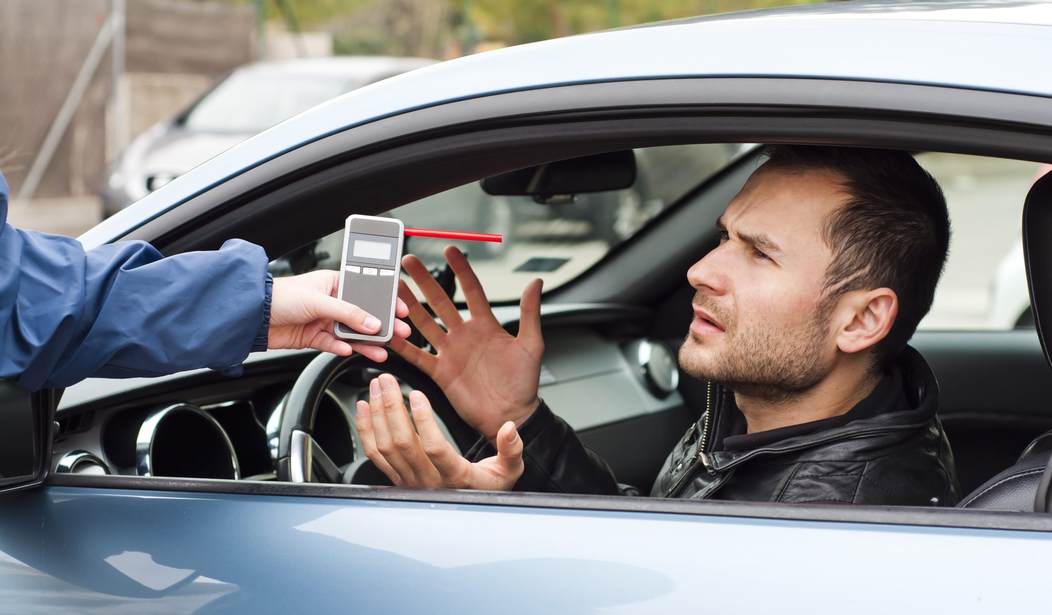New “textalyzer” technology, and enabling legislation, could help police determine if a driver’s texting, Facebooking, Instagramming, Snapchatting, or whatever digital pursuit seemed like a good idea at the time was the reason for a highway crash or erratic driving in the state of New York.
The theory is that the textalyzer would work much like a breathalyzer helps detect a drunk driver.
The New York Civil Liberties Union and other civil libertarians are afraid it will be a flagrant violation of civil rights.
Ben Lieberman disagrees with the NYCLU.
“The general public knows distracted driving is a problem, but if people knew the extent of the damage caused by this behavior, they would be amazed,” Lieberman said.
Lieberman knows.
He has been trying to put an end to distracted driving ever since his 19-year-old son Evan was killed in a 2011 car crash caused by a person who was texting while driving.
Now Lieberman is backing legislation named after his son that would enable police in the state of New York to use textalyzer technology to determine if drivers were texting instead of being forced to get a warrant or subpoena to check cell phone records.
“Evan’s Law” would allow a police officer to demand the cell phones of drivers involved in an accident. The devices of anyone who refused would be confiscated.
“With our current laws, we’re not getting accurate information because the issue is not being addressed at the heart of the problem – with the people causing the collisions,” Lieberman said.
New York Sen. Terrence Murphy (R) and Assembly Assistant Speaker Felix Ortiz (D) have sponsored the legislation, which is supported by Lieberman and the organization he founded, Distracted Operators Risk Casualties (DORCs).
The Assembly and Senate proposals have yet to be voted on by the full legislature.
“The facts regarding distracted driving are startling,” Murphy said. “Every year thousands of Americans are involved in automobile accidents as a result of distractions behind the wheel.”
Even though National Highway Traffic Safety Administration data showed driving a vehicle while texting is six times more dangerous than driving while intoxicated, the AAA Foundation for Traffic Safety reported that 67 percent of drivers still used their mobile phones while behind the wheel.
Mariko Hirose, a staff attorney for the New York Civil Liberties Union, told Wired, for an article which described Evan’s Law as “dumb and doomed,” the legislation would open a morass of legal concerns.
“Distracted driving is a significant concern, as much a significant concern as drunk driving,” Hirose said. “But that doesn’t mean the solutions are the same.”
Lee Tien, a senior staff attorney with the Electronic Frontier Foundation, told CNN there are serious doubts as to the constitutionality of Evan’s Law.
“A law that essentially requires you to hand over your phone to a cop in a roadside situation without a warrant is a non-starter,” Tien said.
Marc Rotenberg, the president of the Electronic Privacy Information Center, called the bill “excessive, unnecessary, and invasive.”
Lieberman said he, Ortiz and Murphy understand the concerns expressed by civil libertarians.
“Respecting drivers’ personal privacy, however, is important, and we are taking meticulous steps to not violate those rights,” Lieberman said.
He explained that although textalyzer technology would allow officers to detect whether or not the driver’s smartphone was being used around the time of a crash, it would not provide access to any content stored on the phone. So, conversations, contacts, numbers, photos, and application data would be kept private.
However, even if those privacy guarantees were maintained, civil liberty advocates wonder what would happen if, let’s say, a drug dealer called while police were checking the driver’s phone. Or what if he or she received a text from a Mafioso setting up a hit?
Lieberman is convinced the new technology would offer sufficient privacy safeguards, just as he is confident the law named after his son will have a positive impact.
He compared it to increased enforcement of drunk driving laws, which Lieberman argued created “a positive change.”
“It’s time to recognize that distracted driving is a similar impairment,” Lieberman said, “and should be dealt with in a similar fashion. This is a way to address people who are causing damage.”
Donna Lieberman, the executive director of the New York Civil Liberties Union who is not related to Ben Lieberman, told CNN Wire Service that while the terms “breathalyzer” and “textalyzer” are similar, the need to check drivers’ cell phones doesn’t compare to determining a drunk’s blood-alcohol content.
“This is not a case where the evidence is about to disappear, or where the physical condition of the individual is going to change with every minute that passes,” she said.
But then again, the phone used for texting by the driver who caused the crash that killed Evan Lieberman would never have been found if Ben Lieberman hadn’t searched junkyards for the vehicle and found the phone among the twisted metal.
Through his own civil lawsuit, Lieberman subpoenaed the phone records and discovered the driver had been texting while he was driving, leading up to the crash.
Lieberman was surprised to learn that the local police force was not to blame for avoiding the driver’s device, but rather that this was typical because there is no official, consistent police protocol.
Ortiz said there are a significant number of drivers who continually engage in reckless behavior, such as texting, using apps and browsing the web on their mobile devices while behind the wheel.
“These people will continue to put themselves and others at risk,” Ortiz said, “unless we give law enforcement better tools to enforce existing laws against the use of electronic devices while driving.”







Join the conversation as a VIP Member